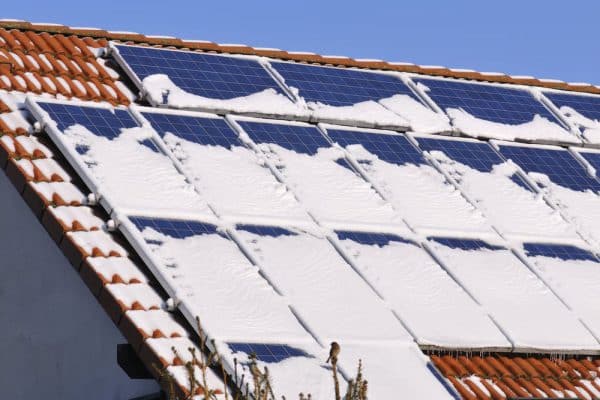Do Solar Panels Work in the Winter?Posted by Becky Johanson in The Basics.
Unless you are from sunny California or one of its neighboring southern states, you have probably wondered if solar panels work in the winter. Good news- solar panels work in the winter since they are still powered by light. They will continue to produce energy if the sun is out even if there 6 inches of snow on the ground. Solar panels are active in most kinds of weather, concluding that energy is produced by solar panels in winter. However, the amount of electricity produced on cloudy days is reduced if there is less light, producing only about a quarter of the maximum expected amount. In the conditions of light snow, the effect on the electrical output of the panels should be minimal. Small amounts of snow can slide off fairly easily from their smooth surface. Even if a thin layer of snow sits on the surface, fully covered panels will still produce some electricity since sunlight can still penetrate the panels in a thin layer of snow. On the other hand, heavy snowfall can have a more detrimental effect on the solar panels in winter and electricity production. Simply put, snow is heavy. If a lot of it falls on a panel, the sheer weight of it can damage the panel and cause malfunctions. On fixtures without frames, snow usually slides off without much problem, so it never accumulates and has little effect on the panel. Contrary to popular belief, snow actually helps solar panels. Think to your windshield in a snowstorm. Once the snow is removed, your windshield is left squeaky clean because any dirt that was previously on the surface is now wiped clean. The exact same thing happens with solar panels--once the snow melts or falls off the panel, it leaves it very clean, and cleaner panels absorb more sunlight. When evaluating your solar needs, the best approach would be to calculate how much sun you can expect over the course of the year, or ask a solar lighting expert to get more information about solar in the winter to see if solar is right for you.
The Basics
|
ArchivesNo Archives Categories
Want More Info? |
LATEST NEWS & ARTICLES
